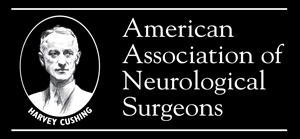Significantintraoperative bleeding can be a stress-inducing event for neurosurgeons. Most neurosurgeons will undoubtedly recall dealing with a ruptured aneurysm or heavily bleeding tumor at some point in their training or career. High-volume blood loss can be particularly stressful, and this stress can impact fine motor control, increase tremor, and impair judgment as the surgeon attempts to deal with intraoperative events. The risk to the patient involves both the actual blood loss and associated alterations in physiology such as hypotension. Moreover, as the surgeon attempts to control bleeding, surrounding normal tissues are at an increased risk of inadvertent injury because of impaired visualization and impaired motor performance.
In this article, Bajunaid et al. attempted to quantify the effects of stress on psychomotor performance when uncontrolled “bleeding” occurred in a virtual reality simulated tumor resection task.1The task was performed by operators with various levels of expertise, including attending neurosurgeons, residents, and medical students. The operators did not have prior knowledge of the event or what would be measured in terms of study outcomes. The study demonstrated differences in how the intraoperative bleeding event was handled. The more experienced neurosurgeons achieved a greater degree of tumor resection despite the bleeding and demonstrated a higher level of the coordinated use of a suction device in the nondominant hand and an ultrasonic aspiration tool in the dominant hand to control bleeding during the bleeding stress scenario. Overall, the operative efficiency of the attending neurosurgeons, while reduced during the stress episode, was still higher than the baseline performance of resident surgeons; this finding is consistent with a graded development of operative skills during and after residency training.
While the number of participants was relatively small, the virtual tumor resection task had limited complexity, and there are other limitations, this study does contribute a unique assessment of the immediate impact of an unexpected complication on the surgeon in a virtual reality simulation. A valuable outgrowth of this type of work could be validated strategies to enhance surgeon preparation for rare intraoperative events and to improve complication avoidance. Documented resident preparation in handling a number of virtual reality intraoperative complication scenarios could become a staple of our training programs. Lastly, I hope that future virtual reality scenarios created by the authors will also assess the impact of an acute intraoperative stressor requiring simultaneous motor attention on any required medical decision making (for example, instructions to the anesthesiologist).
References
BajunaidK,MullahMAS,Winkler-SchwartzA,AlotaibiFE,FaresJ,BaggianiM,et al.:Impact of acute stress on psychomotor bimanual performance during a simulated tumor resection task..J Neurosurg[epub ahead of print March 11, 2016. Doi: 10.3171/20155.JNS15558]
Disclosures
The author reports no conflict.


